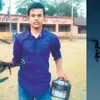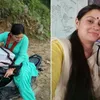Meet the man who treks 8 hours to deliver measles-rubella vaccines to children in a remote village in Arunachal Pradesh
Read this exclusive story by SocialStory of Shri Phurpa, a trained medical assistant, who is working since 2013 to ensure that children in Mago, a remote village in Arunachal Pradesh, don’t suffer.
Some stories are worth waiting for. It took the SocialStory team more than three months to track Shri Phurpa, a medical assistant from Mago, which is a remote village in Arunachal Pradesh.
Bordering China and being the last border post in the district of Tawang, Mago remains one of the most isolated areas in the state. It has neither primary healthcare facilities nor a market for daily necessities. One must trek at least 36 km to the nearby town of Jang to access even the most basic facilities.
Since 2013, Phurpa has been trekking various mountains and crossing streams every month to provide the children of Mago with vaccinations for Measles-Rubella. The SocialStory team had to wait for Phurpa to come to the district headquarters at Tawang, which he visits every month to source medical supplies.
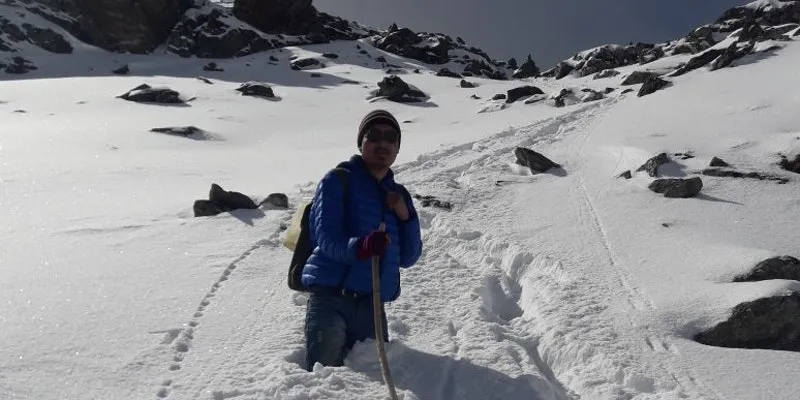
Stopping at nothing, Shri Phurpa with the medical equipment trekking through the knee-depth snow
So far, he has vaccinated 35 children in the village, which houses 75 families. Recently, he has also started delivering polio vaccines in the area.
Speaking to SocialStory, Phurpa recalled his initial efforts. He says,
“The first time I went to Mago for a vaccination drive, I found it very tough. The journey was tiresome and long. I had to walk for hours to get to my destination.”
After undergoing his medical training in 2011, Phurpa wanted to do something good for his village. Phurpa now collects vaccines and medical equipment from Tawang district. Due to lack of mobile connectivity, medical authorities help him plan his next visit to Mago in advance.
“I took it up as a challenge to bring healthcare closer to the children of a village that doesn’t even have roads. Now, I am so glad that these children are out of danger from measles and rubella,” Phurpa says.
The journey towards becoming a changemaker
The campaign under which Phurpa is working since 2013 is a part of a global effort to reduce illness and deaths because of measles, rubella, and congenital rubella syndrome (CRS). This, in turn, has helped reduce child mortality under the age of five years and prevented CRS.
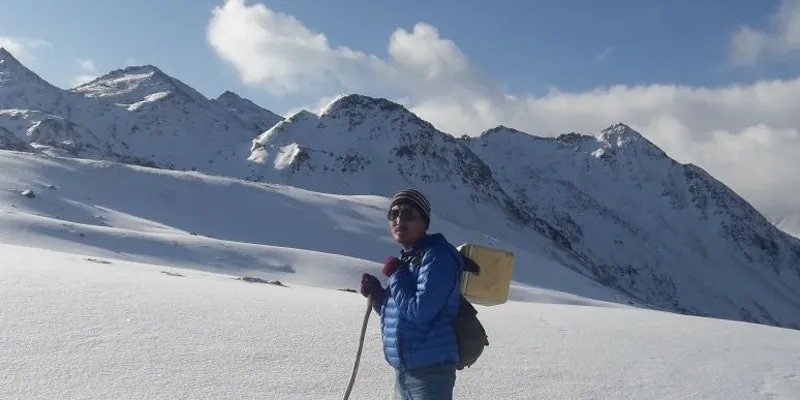
Keen to do something good for his remote village, Phurpa decided to ensure that children in Mago were vaccinated against measles and rubella.
Despite the tough terrain, Phurpa’s campaign has achieved a success rate of 100 percent. Besides this, he also carried out a vaccination drive in Luktham a few months ago - another treacherous journey of 12 hours. For his work, Phurpa is paid a monthly salary of Rs 25,000.
Overcoming the big challenge
Trekking long distances on a daily basis and not giving up requires a lot of motivation. But Phurpa refuses to give up.
When YourStory asked about accessibility, he says,
“Our village received electricity four years ago but we still have no towers for any telephonic or mobile communication. There are only a few households; we have just one government primary school. Two of my kids are studying there while my third child is studying in a private school in a nearby town.”
Along with geographical constraints, the harsh winters made his operation even more difficult. Since the village is dominated by shepherds who tend to move to greener pastures, Phurpa has had to scale even longer distances to vaccinate the children of these shepherds.
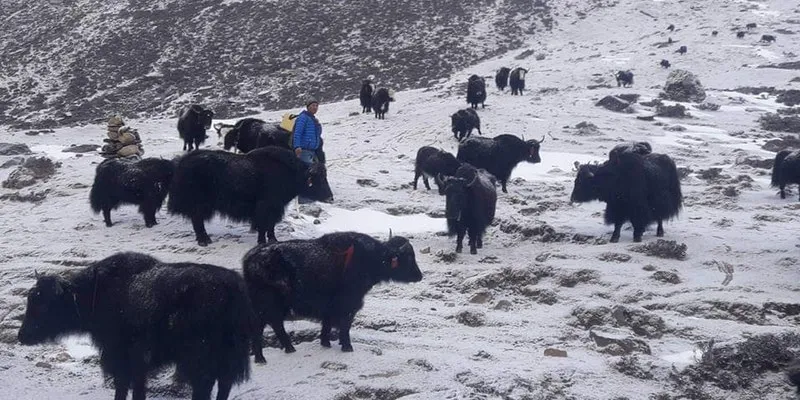
Phurpa has to trek longer distances over more treacherous terrain when shepherds migrate during the winter.
Dr Wangdi Lama, District Medical Officer, Jang, Tawang district, is all praise for Phurpa.
“After a series of training sessions from Tawang District Hospital, Phurpa requested higher authorities to allow him to travel to his village Mago. He wanted to bring basic healthcare closer to the people,” he says.
Why measles-rubella needs to be tackled
Measles and rubella have dire consequences. The global Measles & Rubella Initiative claims that since 2000, 562,000 children across the world have died due to measles every year . On the other hand, rubella, also known as German Measles, affects pregnant women and their new-born babies. The initiative’s data states that 100,000 children are born with CRS, and witness multiple birth defects such as heart problems, deafness, and blindness.
India's Ministry of Health and Family Welfare has initiated the Measles-Rubella (MR) Vaccination Campaign for children between the age of nine months and 15 years. India hopes to eradicate the disease by 2020 with the support of World Health Organisation (WHO), Southeast Asia Region. So far, 41 crore children have been covered under this programme in a phased manner.
Appreciation from the armed forces and the community
Vaccination drives in remote areas are usually assisted by helicopters. But Phurpa did not hesitate to travel by foot and reach out to as many children as possible. Not surprisingly, he has received quite a few tokens of recognition for his efforts.
“Apart from the residents, the officers of the armed forces stationed at Mago found it remarkable that children were being vaccinated in such remote areas,” Dr Wangdi says.
Earlier this year, on Republic Day, the District Commissioner of Tawang awarded Phurpa for his commendable work. He was also honoured by the Government of Arunachal Pradesh.
When asked about operational challenges of vaccination programmes in remote areas, Dr Wangdi says,
“According to the Government of India, if several children need to be vaccinated, the drive is carried out on Tuesdays and Saturdays. If the target population is low and accessible, vaccination is done on a monthly basis. For areas like Mago, it is only on a quarterly basis.”
Following Phurpa’s undeterred efforts to pave the path for healthcare facilities to reach Mago, medical assistance has now started reaching residents. For instance, pregnant women now receive timely tetanus injections.
However, there are still no hospitals nearby except one community health centre, with three full-time doctors, in Jung, 31 km away. The village does have an Indo-Tibetan Border Police (ITBP) post, which has one nursing assistant to provide basic healthcare necessities.
“I expect nothing but better healthcare facilities for my village Mago. As long as there isn’t a better healthcare facility in place, I shall and will serve my village and my people,” Phurpa says.


